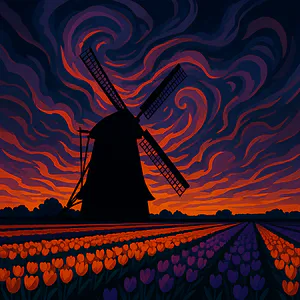Generate Dutch names
More Real Name Generators- <% result.name %>
Discover all Story Shack apps
Discover the Essence of Dutch Names
Choosing the perfect Dutch name can be a journey into culture and heritage. Use these thought-provoking questions to inspire unique and meaningful names that resonate with Dutch traditions.
- What historical figures or legends inspire the name you're seeking?
- Which elements of nature or geography can influence your choice of name?
- How do familial ties and ancestry shape the significance of a name?
- What emotions or traits do you want the name to evoke?
- Are there specific cultural references or symbols you wish to incorporate?
Frequently Asked Questions
Here are some common inquiries about the Dutch Name Generator and how it can assist in your naming process.
How does the Dutch Name Generator work?
It randomly combines elements from Dutch language and culture to create unique names with each click.
Can I specify the type of name I want?
Currently, you can't specify; however, you can generate names repeatedly until you find one that captures your vision.
Are the names unique?
The names are randomly generated; with unlimited clicks, you'll encounter a diverse array of options, though some may share similarities.
How many names can I generate?
You can generate an unlimited number of names; simply click 'Generate' as many times as you wish.
How do I save my favorite names?
You can copy a name instantly by clicking on it, or use the heart icon to save it for future reference.
What are good Dutch names?
There's thousands of random Dutch names in this generator. Here are some samples to start:
- Gustav Veerkamp
- Tobias Merck
- Guus Wagman
- Maurits Cloos
- Cor Maassen
- Anne Heggen
- Inge Helman
- Natalie Kysar
- Hanneke Heyman
- Nanne Lauman
About the creator
All idea generators and writing tools on The Story Shack are carefully crafted by storyteller and developer Martin Hooijmans. During the day I work on tech solutions. In my free hours I love diving into stories, be it reading, writing, gaming, roleplaying, you name it, I probably enjoy it. The Story Shack is my way of giving back to the global storytelling community. It's a huge creative outlet where I love bringing my ideas to life. Thanks for coming by, and if you enjoyed this tool, make sure you check out a few more!


























































